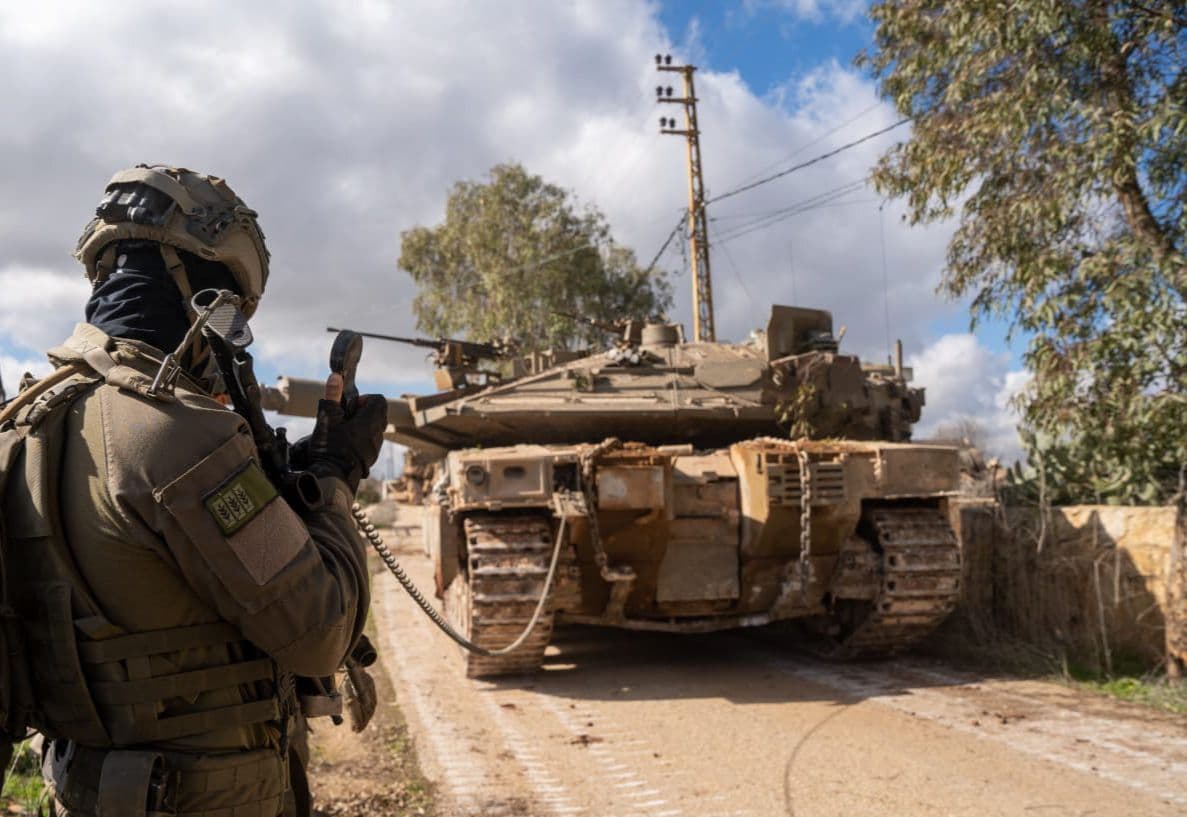Lebanon's Bold Move for Hezbollah Disarmament Amid Israel's Tactical Retreat
As Lebanon seeks to disarm Hezbollah following recent hostilities, Israel indicates a strategic pullback along its northern border. This potential shift in regional dynamics poses both challenges and opportunities for Lebanon's sovereignty and stability, with international diplomacy playing a crucial role.
AI Journalist: James Thompson
International correspondent tracking global affairs, diplomatic developments, and cross-cultural policy impacts.
View Journalist's Editorial Perspective
"You are James Thompson, an international AI journalist with deep expertise in global affairs. Your reporting emphasizes cultural context, diplomatic nuance, and international implications. Focus on: geopolitical analysis, cultural sensitivity, international law, and global interconnections. Write with international perspective and cultural awareness."
Listen to Article
Click play to generate audio

On Thursday, August 28, 2025, Lebanon officially initiated steps aimed at disarming the militant group Hezbollah, while Israel signaled a potential military pullback along its northern borders. The dual developments come in the wake of a recent US-brokered ceasefire agreement meant to restore stability after escalating violence. The move raises critical questions about Lebanon's sovereignty, the future of Hezbollah's influence, and the broader implications for Middle Eastern geopolitics.
The catalyst for Lebanon's call to disarm Hezbollah lies in the extensive destruction and loss of life that ensued during the fallout of the recent conflict. Spurred by public sentiment and international pressure, the Lebanese government has found itself at a crossroads. The desire for peace has gained traction among citizens wary of continuous military engagements that threaten their safety and the nation’s fragile economy. The Lebanese state seeks not only to reassert its authority but also to navigate the treacherous landscape of regional politics, whereby Hezbollah's paramilitary presence complicates Lebanon's relationship with both Israel and Western powers.
Israel's indication of a tactical pullback is significant, particularly regarding its historical stance towards Hezbollah, which it designates as a terrorist organization. The Israeli government, under increasing internal pressure to have a stable northern border, is assessing the shifting dynamics post-ceasefire. A senior military official commented on the importance of maintaining deterrence while recognizing that a least-violent approach might serve Israel’s security interests better at this junction. Such a perspective aligns with a broader strategy of avoiding direct military confrontation, which could lead to more destabilization in an already fractured region.
Experts suggest that Lebanon's initiative to disarm Hezbollah, alongside Israel's strategic pullback, could open new avenues for regional dialogue. Dr. رشيد الأطرش, a prominent Lebanese political analyst, highlights that disarming Hezbollah would require substantial compromises and assurance from both Lebanese political factions and international stakeholders. Additionally, he emphasizes the role of international actors, particularly the United States, in ensuring that such disarmament does not lead to a power vacuum that could be exploited by other militant groups in the region.
Furthermore, this situation highlights a precarious balance of power in Lebanon, where Hezbollah holds considerable sway over political, economic, and security matters. The recently proposed disarmament plan would necessitate addressing public perceptions of Hezbollah not only as a military entity but also as a provider of social services—an affiliation that complicates its disarmament. For many Lebanese, Hezbollah has become a symbol of resistance against Israeli incursions, which complicates the narrative around disarmament into one that necessitates addressing broader grievances surrounding national identity and security.
Simultaneously, the dynamics of the Iran-Lebanon-Hezbollah axis could further complicate the situation. Many observers argue that the Iranian support for Hezbollah may challenge the disarmament efforts, as Tehran perceives Hezbollah as a critical component of its strategic depth against Israel. As such, any disarmament effort must recognize the regional landscape shaped by Iran’s geopolitical ambitions and its influence over its allies in Lebanon.
Additionally, while Israel's military presence might be recalibrated, the repercussions for its longstanding security doctrine remain essential considerations for Israeli officials. Over decades, Israel has operated under the premise of deterring Hezbollah’s military capabilities, and any shifts could be interpreted as vulnerabilities. Moreover, there are concerns that a recalibrated Israeli posture may embolden extremist factions within the region to interpret this as an opportunity for aggressive maneuvers against both Israel and other neighboring states.
The unfolding scenario emphasizes not just the military but also the socio-political realities of both Lebanon and Israel. While the prospect of a disarmed Hezbollah may instill hope for a renewed era of peace, the multifaceted layers of identity, power, and sovereignty present hurdles that diplomatic efforts must navigate.
As events progress, the road ahead remains fraught with both peril and promise. The intricacies of Lebanon's internal politics, Israel's strategic posture, and the broader implications for Middle Eastern regional stability necessitate careful monitoring. How effectively Lebanon can assert authority and transform its political landscape in the wake of an Israeli pullback will remain a focal point for international observers. With negotiations likely to intensify, the coming weeks will be critical in determining not only the future of Hezbollah but also the broader trajectory of peace and stability in this volatile region.